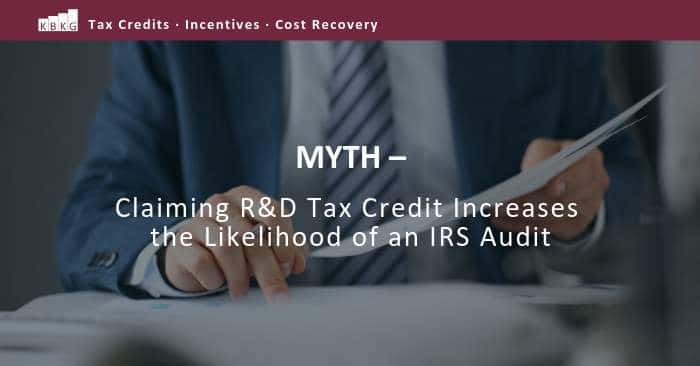The Research & Development Tax Credit is a federal benefit (also available in many states) that was enacted to promote growth, innovation, and inspire advancements in all areas and facets of business. The credit is an undoubtedly beneficial incentive for businesses large and small. However, many companies are hesitant to take advantage of the credit for fear of a possible IRS audit. This is a common misconception. Taking a research credit on a timely filed return, including extension, does not increase your audit risk. Recent IRS statistics indicate that approximately .9% of all Corporate tax returns and .2% of pass-through (S-Corp and Partnership) tax returns are audited annually. When a return is selected, it can be for a variety of reasons including random selection. If a tax return is selected for review by the IRS, agents generally will focus on the most material items included on a return. The research credit tends to be one of the most material and effective items used by taxpayers to lower effective tax rates.
As such, properly detailed documentation goes a long way toward the sustainability of the credits claimed, which minimizes time, effort, and stress under IRS audit. Working with a qualified, ethical firm with integrity can abate many issues that could arise during an audit. Companies need to select a provider that can ensure the highest standard of documentation prepared during the study. Learning what to expect and how to be prepared in the event of an audit is highly recommended.


